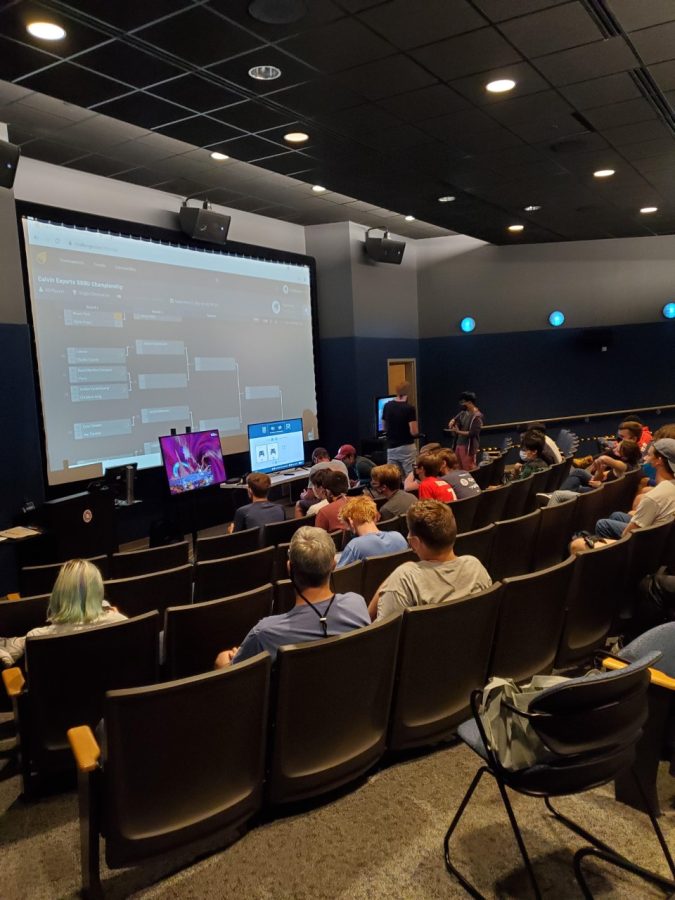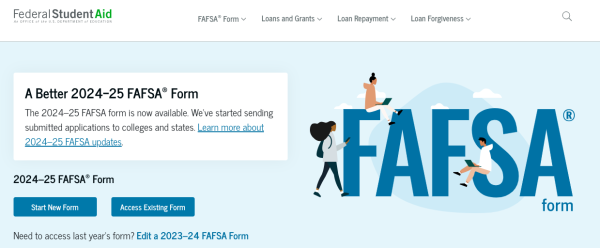President Boer temporarily doubles student org budget
Student organizations like Calvin Esports, shown here competing in a tournament, can now apply to increase their budgets for the year.
Student organizations can now apply to increase their budgets, courtesy of university President Wiebe Boer, Student Senate President Nain Miranda announced via Yammer on Oct. 19. The measure is a temporary response to student concerns.
“Over the past five years, student org budgets have been cut by 40%,” said Associate Dean of Campus Involvement and Leadership John Britton. Because enrollment did not decrease by that much, the situation was “inequitable,” Britton said.
In those five years, the total number of student organizations dropped from 83 to 53 — a 36% decrease.
Student Senate raised the issue to Boer, who “was very open and receptive to those ideas,” Britton said.
“When President Boer heard about the vision of Student Senate, he agreed that this is an opportune time to reinvest in student-led engagement on campus,” said Vice President for Student Life Sarah Visser.
Britton told Chimes that Boer designated $50,000 — on top of the original $70,000 budget — for student organizations this year. Boer has access to a “small discretionary fund” from which he drew this money, according to Visser.
Campus Involvement and Leadership has prepared a process for distributing the additional funds.
Budgets for the fall semester have already been determined, but student organizations can apply for immediate additional funding on a rolling basis. Then, while submitting their spring 2023 budget requests, student organizations can apply for 25% to 125% increases to individual line items.
In other words, the budget doubling “wouldn’t be across the board,” Britton said. Instead, a committee composed of Britton and five students will review applications and make final decisions. Britton told Chimes that these decisions will primarily be based on the club’s history: a club that has been active and productive will be more likely to receive additional funding.
“We want this money to be stewarded well,” Britton said, drawing comparisons to the parable of the talents. “We want orgs that are currently doing that well to have the opportunity to steward additional funding.”
Additionally, Britton said, CIL will use part of the extra money to increase the number of student organizations on campus. In past years, only a limited number of student organization charters have been available; due to funding constraints, a new club could only be created between the fall and spring semesters if an existing organization dropped out.
Now, CIL is planning a start-up initiative, which will allow additional student organizations to launch next semester. “It’s a chance for [new] student organizations to blossom quickly” in the spring, Britton said, describing a “quicker and cleaner” start-up process. “They [new student organizations] will be guaranteed a budget. They’ll have an opportunity to start off right away and see how it goes. Hopefully, 10 new groups can blossom this spring.”
All of the extra funding will be spent by the end of this academic year.
“I’m hopeful that this increased funding will further elevate student engagement at Calvin,” said Visser.
For existing student organizations, additional money could be a game-changer.
Junior Jessa Morren serves as the literary manager for Newfound Narratives One-Act Festival , which “aims to produce fully student-written, selected and produced theater.” Morren told Chimes that NNOAF plans to apply for the increased budget.
“We’re hoping that, for the first time in our organization’s history, we’ll be able to provide a cash prize for the winners of this year’s scriptwriting contest,” Morren said. Previous years’ submission pools have been “incredibly small” — so small, in fact, that last year, NNOAF had to “divert from one of [its] main goals as an organization” by producing a classic one-act play, rather than a student-written piece. Morren hopes that offering a cash prize will attract more interest and ultimately more submissions.
Senior Trace Rutman, president of Calvin Esports, said that student organization leaders have long been voicing budget concerns, so it was “crazy” to learn that Boer had remedied the issue so quickly. “I was definitely surprised at first,” he said. “This is going to provide a lot of opportunities.”
Rutman hopes to use any additional funds Calvin Esports receives to purchase equipment, including team uniforms. Extra money will also help his teams enter more tournaments, since collegiate tournaments can cost anywhere from $50 to $100 to enter. “It’ll give our players more opportunities to compete — and to compete at a higher level.”
In the future, Britton hopes to fund student organizations with a new student activities fee of $80 per semester. “It would be nice to have our budget tied to enrollment, rather than tied to an abstract number,” he said, noting that most other universities have a student activities fee.
Beyond student organizations, this proposed fee would also fund the Student Activities Office, and it would provide Student Senate with a dramatically increased facilities improvement budget.
Currently, this budget hovers around $5,000 each year. “If you were to try to spend $5,000 on a space, it doesn’t go very far,” Britton said. But with a student activities fee in place, Student Senate could spend between $80,000 and $100,000 per year on these improvements.
For Rutman, a long-term solution to his budget concerns — such as Britton’s student activities fee — is essential. “We’re going to need to continue to invest in student organizations, because that’s where students can find a community and feel at home at Calvin,” he said. “If [student organizations] are underfunded, then where are they going to find that community?”








